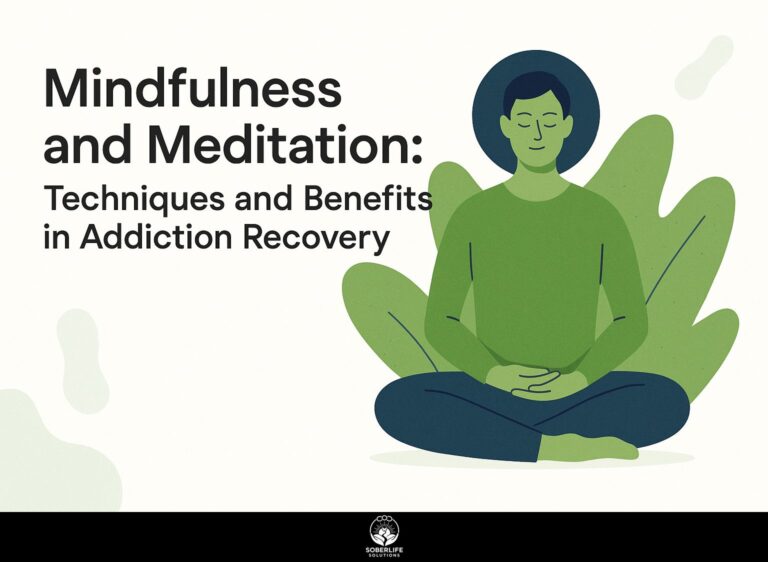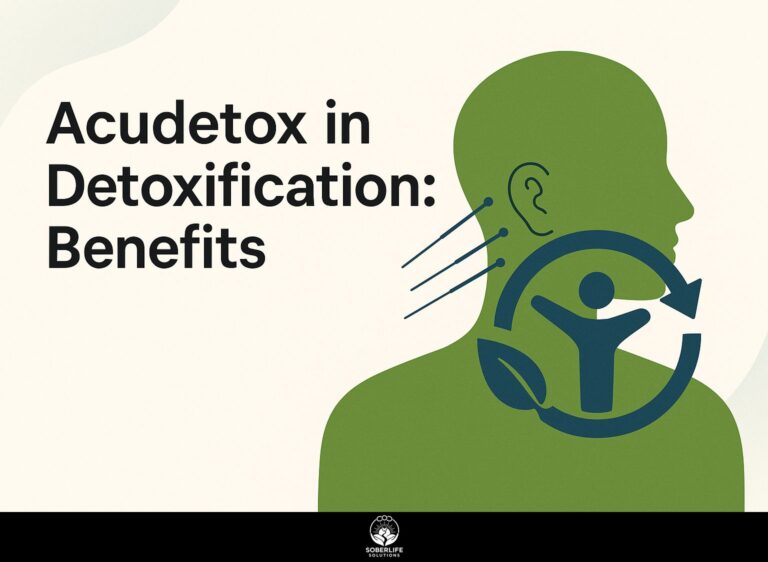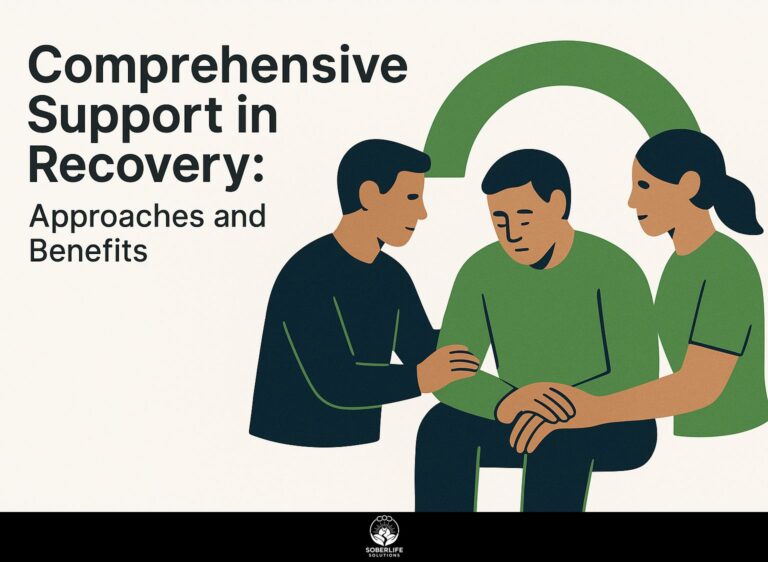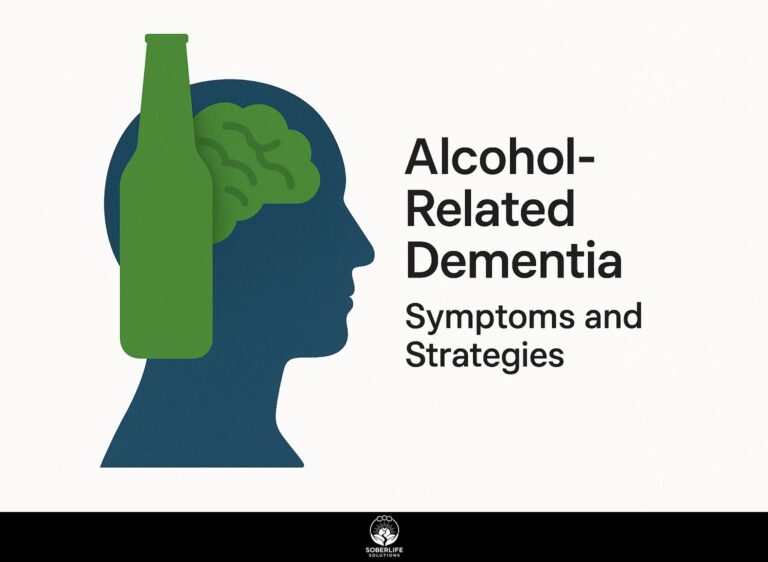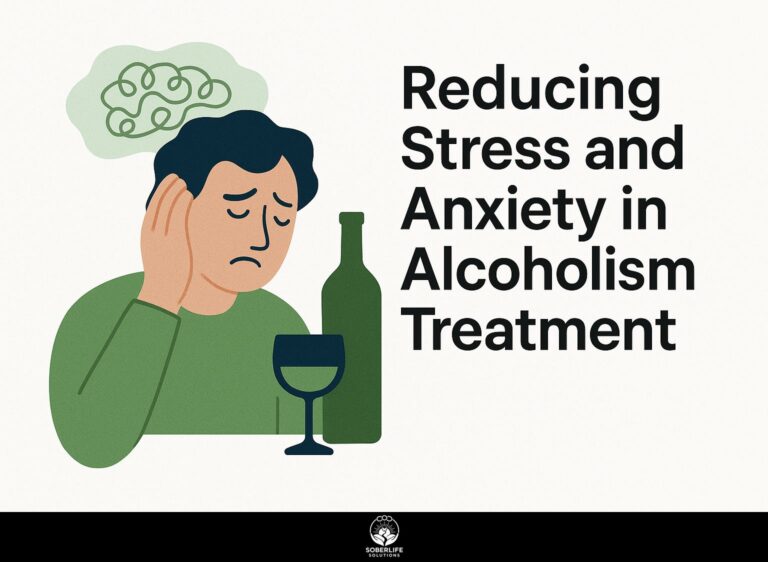Spiritual Factors in Alcohol Recovery: Risk and Integration
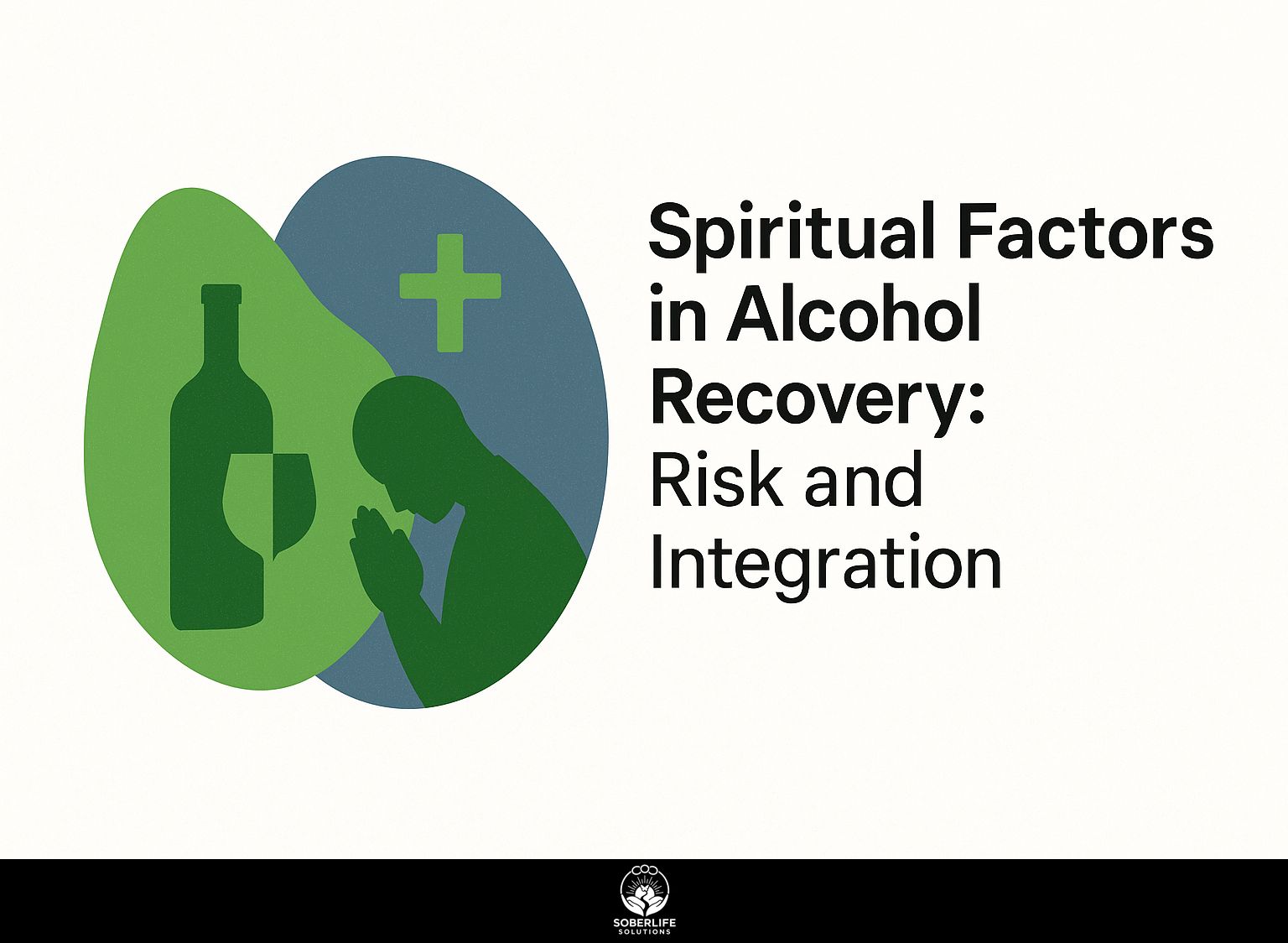
Introduction to Spiritual Factors in Alcohol Recovery
Recovering from alcohol use in a lasting way usually means dealing with both the physical and spiritual parts of healing. The intersection of spirituality and substance use disorders can significantly influence treatment outcomes. Learning how religious beliefs and personal spirituality aid in recovery provides helpful information for people looking for support. This article looks at the pros and cons of including spiritual practices in alcohol recovery, which may lead to a more all-encompassing method for long-term change.
Key Takeaways:
Understanding Spirituality in Recovery
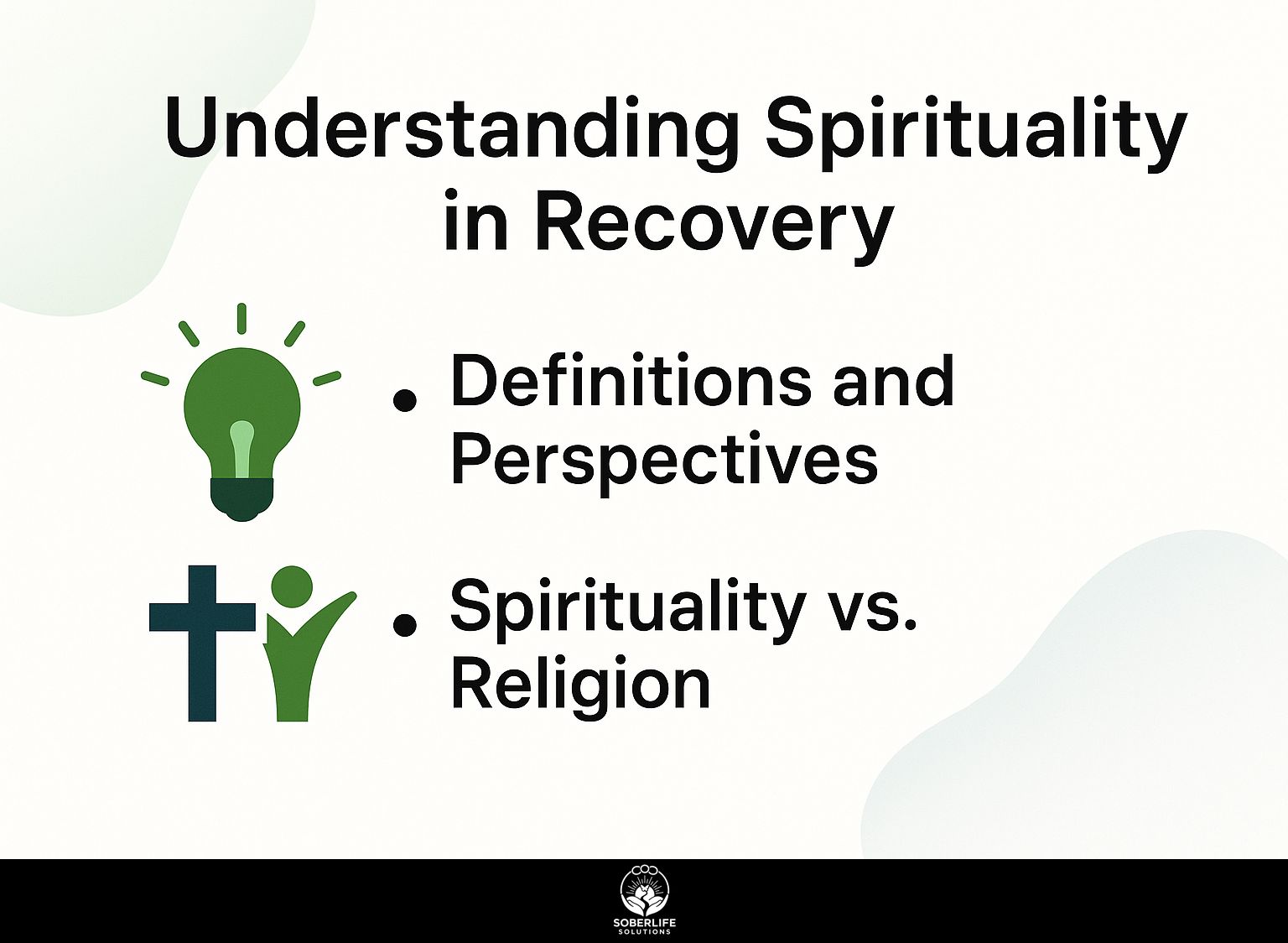
Spirituality can mean different things to different people and can influence how a person recovers and interacts with substance use. For those interested in a more comprehensive approach, one of our hidden gems on holistic recovery explores the connection between spirituality and overall well-being.
Definitions and Perspectives
Spirituality can be defined as a personal search for meaning and connection, often linked to emotional healing and psychological growth.
Different meanings of spirituality can influence how addiction treatment is approached.
For example, some individuals find spirituality through traditional religious practices, which may involve community support and structured rituals. Some people may choose a non-religious view, finding a sense of connection in nature, art, or thinking about themselves. According to Psychology Today, the distinction between religion and spirituality can significantly impact how individuals find this sense of connection. (source)
These different viewpoints can greatly affect recovery experiences. People who follow a religious path might find faith-based recovery programs helpful, while others might do well in settings that focus on mindfulness or personal reflection.
Knowing one’s spiritual beliefs can help in their recovery.
Spirituality vs. Religion
Even though spirituality and religion are often connected, they are different ideas that can affect recovery in their own ways.
Religion typically involves structured practices, communal worship, and adherence to specific doctrines, such as Christianity, Islam, or Buddhism.
In contrast, spirituality is more personal and can manifest as a search for meaning, connection, or inner peace without the confines of organized practices.
For people working on their recovery, a spiritual approach might include meditation, being mindful, or spending time in nature to help them grow personally. This flexibility helps people examine their beliefs more genuinely, which can be very important in recovering from addiction or trauma.
Worth exploring: Faith-Based Detox Programs: Definition, Approach, and Benefits as part of a holistic recovery journey.
The Role of Spirituality in Addiction
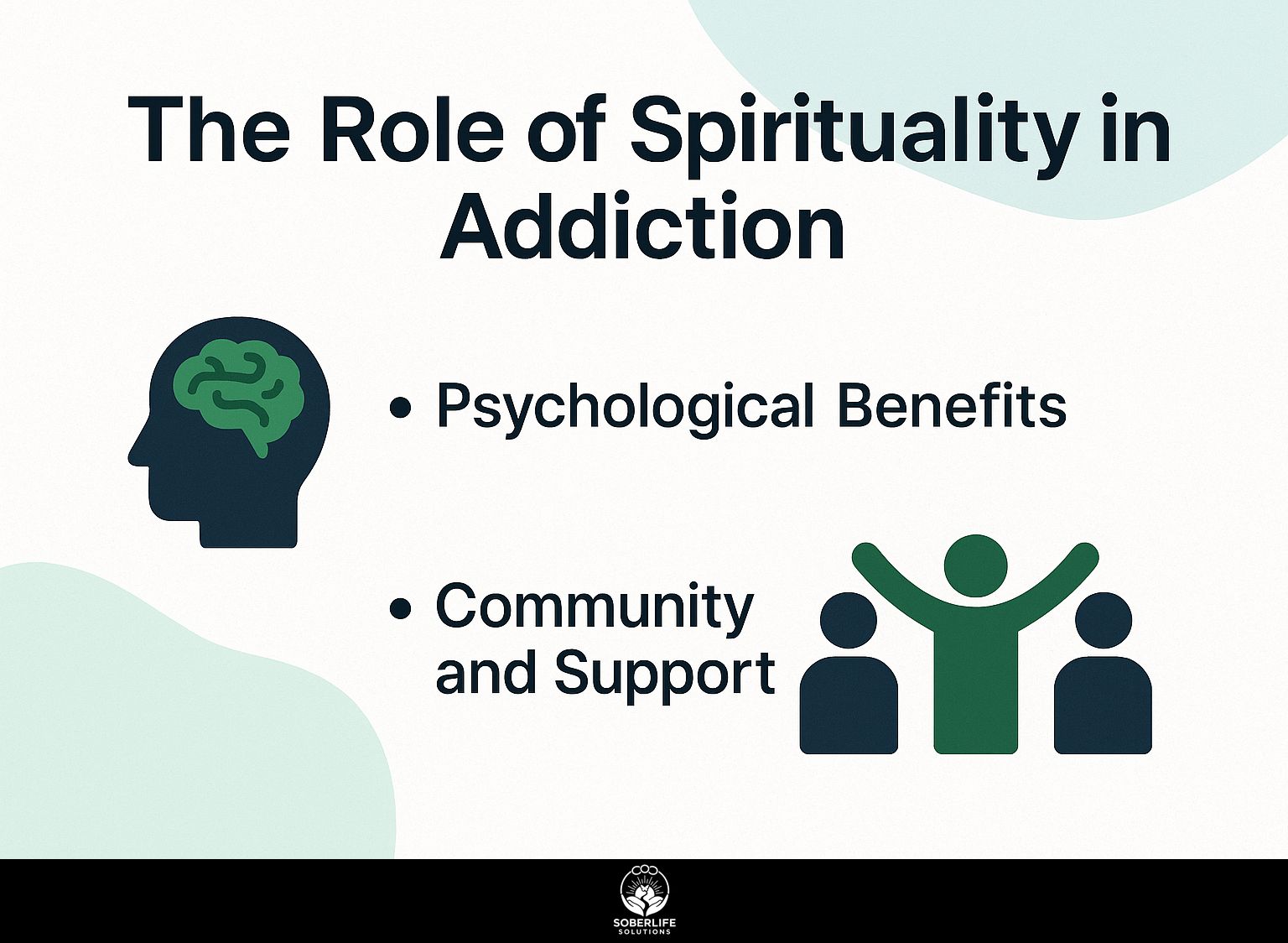
Including spirituality in addiction recovery can provide important mental health advantages and build a supportive group needed for recovery. As mentioned in our detailed resource on Spiritual Health: Purpose and Meaning in Recovery, integrating spiritual practices can significantly enhance the recovery process by fostering a sense of purpose and connection.
Psychological Benefits
Spiritual practices can support emotional recovery, increase confidence in dealing with life’s difficulties, and promote effective coping strategies for those overcoming addictions.
For instance, mindfulness meditation promotes resilience by helping individuals stay present and manage anxiety. According to research findings from the UCLA Health, these practices have been shown to significantly enhance emotional well-being.
Regularly engaging in prayer can offer a sense of community and connection, which has been shown to reduce feelings of isolation.
Group activities, such as participating in a recovery-focused spiritual support group, can strengthen emotional bonds and provide encouragement.
By adding these practices to daily routines, people in recovery can handle challenges more confidently and with less stress, leading to a healthier mindset.
Community and Support
An essential aspect of recovery involves engaging with community support, including mutual help groups that emphasize spiritual practices.
Groups like Alcoholics Anonymous (AA) offer a supportive setting where people can relate to each other through similar experiences and personal development.
Members often participate in regular meetings that encourage sharing personal stories and support. Incorporating spiritual elements-such as the Twelve Steps-facilitates a deeper sense of purpose and accountability.
People often find that using meditation apps like Headspace or reading books on spirituality improves their recovery process. The shared environment, along with an emphasis on spirituality, provides a supportive structure essential for lasting healing. According to a new Cochrane Review, Alcoholics Anonymous and 12-step facilitation programs have been shown to help people achieve successful recovery. In addition, attending [events like the Recovery Pow Wow](https://soberlifesolutions.com/recovery-pow-wow-importance/), which highlight the importance of community and cultural practices, can greatly enhance the recovery journey.
Risks of Spirituality in Recovery
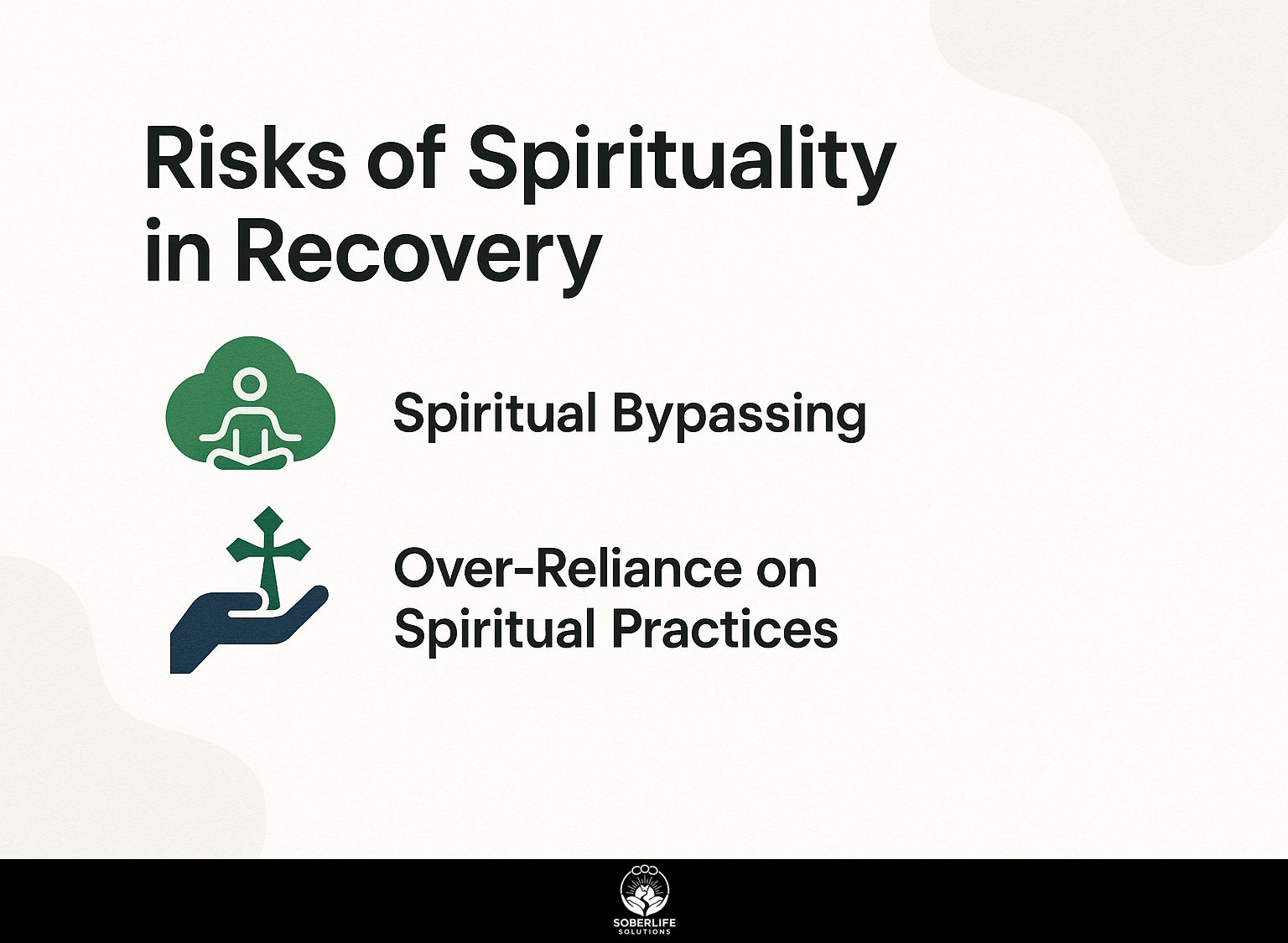
While spirituality can help in recovery, it also has downsides, such as avoiding real problems and depending too much on spiritual activities without dealing with the root causes.
Spiritual Bypassing
Spiritual bypassing occurs when individuals use spiritual beliefs to avoid facing emotional pain or psychological issues, hindering their recovery progress.
For example, someone might avoid their feelings of grief by only focusing on positive affirmations or meditation, thinking these will lift their mood.
To identify and steer clear of this mistake, it’s key to think about your feelings and be truthful with yourself. Practices like journaling can help identify when spirituality is used as an escape.
Consider finding therapy that includes spiritual beliefs, ensuring that spirituality supports mental health but does not take its place. This approach promotes a healthier balance between self-awareness and spiritual growth.
Over-Reliance on Spiritual Practices
An over-reliance on spirituality may lead to neglecting evidence-based treatments necessary for effective addiction recovery.
While spiritual practices such as meditation or prayer can play supportive roles in recovery, they should not replace traditional therapy and medical interventions.
For instance, individuals might benefit from combining mindfulness meditation with cognitive-behavioral therapy (CBT), which addresses behavioral patterns.
Combining 12-step programs with one-on-one counseling offers a complete method that addresses both spiritual and mental aspects. Creating a system with two parts supports individuals in increasing their strength and recovering, while ensuring they have access to medical care when needed.
Integrating Spiritual Practices in Recovery Programs
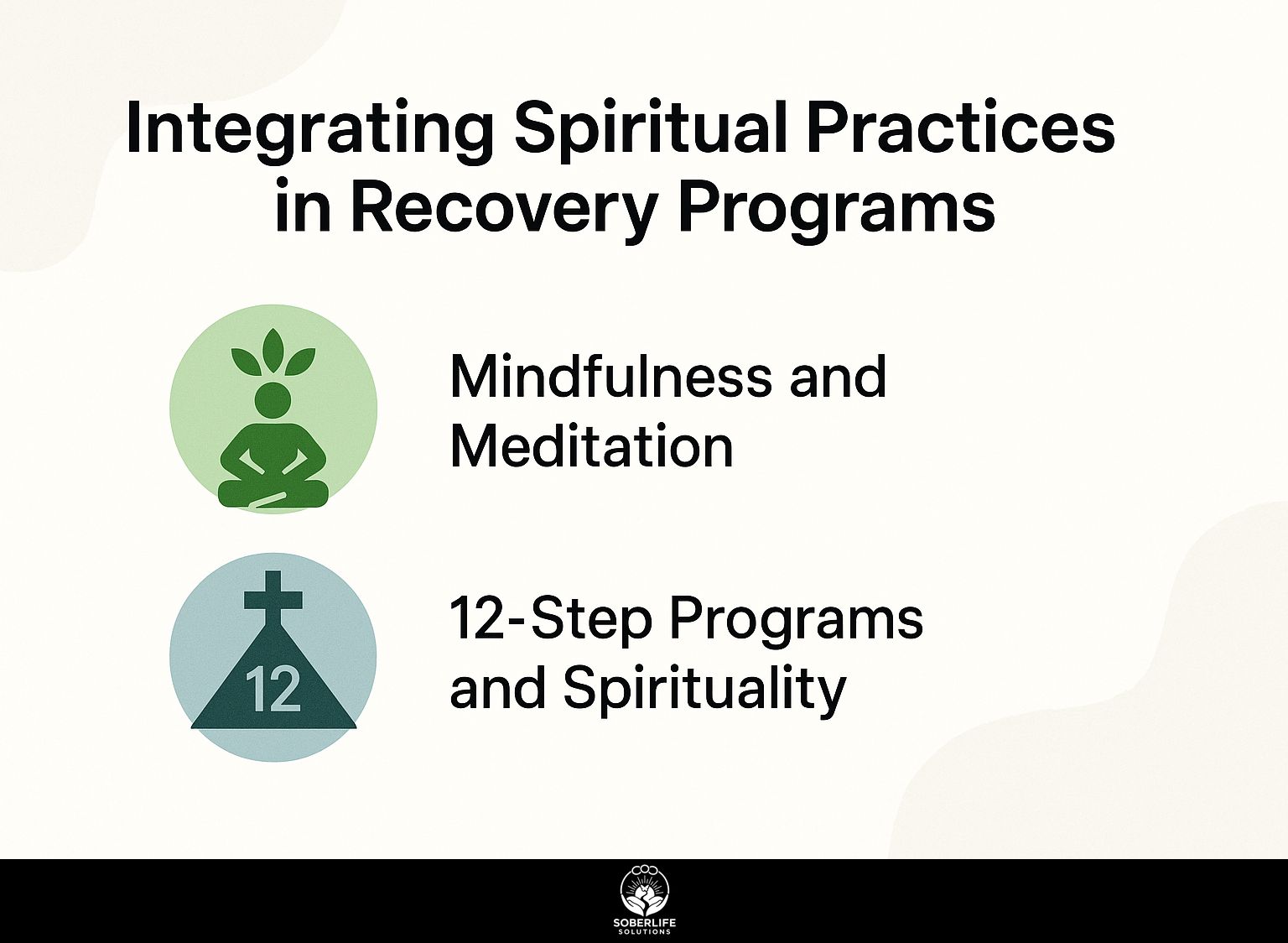
Including spiritual practices in recovery programs can improve treatment results and support overall healing. Understanding the benefits of faith-based detox programs is crucial, as they offer unique approaches that enhance the recovery journey.
Mindfulness and Meditation
Practices like mindfulness and meditation are important tools that can greatly help people during their recovery process.
To begin incorporating mindfulness and meditation into recovery, start with brief exercises, such as daily focused breathing. Spend five minutes each morning observing your breath, allowing thoughts to come and go without attachment.
Tools like Headspace offer different meditations designed to help with emotions. You can choose from free or paid options. Consider journaling to reflect on your progress and feelings; set aside time each evening to write about your day.
These habits build self-awareness and strength, supporting you through the challenges and progress of recovery.
12-Step Programs and Spirituality
The 12-step program is deeply rooted in spiritual principles, offering a structured approach to addiction recovery that emphasizes personal growth and connection to a higher power.
The program includes steps like recognizing a lack of control, asking for help from a higher power, and apologizing to those who have been hurt.
For example, Step 3 encourages individuals to turn their will over to a higher power, which can instill a sense of hope and purpose. Many participants have shared noticeable changes in their lives. For example, after finishing the program, one person reconnected with their sibling and found a stable job.
These spiritual principles encourage community, responsibility, and personal healing, improving the recovery process.
Frequently Asked Questions
What are the spiritual factors involved in alcohol recovery?
Spiritual aspects important in alcohol recovery involve looking to a greater presence for help, being aware and thoughtful, and discovering a reason to live and feel fulfilled.
How does spirituality impact the risk of alcohol relapse?
Spirituality can serve as a protective factor against relapse by providing individuals with a sense of inner peace and coping mechanisms for dealing with stress and triggers.
What role does integration of spirituality play in alcohol recovery?
The integration of spirituality in alcohol recovery can provide individuals with a sense of community and support, as well as a way to address underlying issues and traumas that may have led to alcohol abuse.
Can individuals in alcohol recovery still have a spiritual practice if they do not identify with a specific religion?
Yes, spirituality and religion are not necessarily the same thing. Someone can follow a spiritual routine without being part of a particular religion, as it is a personal and unique experience.
How does spirituality help with healing and personal growth in alcohol recovery?
Spirituality can offer individuals a sense of hope, purpose, and connection, which can aid in their healing and personal growth. It can also provide tools for self-reflection and self-improvement.
Is it necessary to have a spiritual practice for successful alcohol recovery?
No, spirituality is not a requirement for successful alcohol recovery. It is a personal choice and can be helpful for some individuals, but it is not a one-size-fits-all approach. Different methods and techniques may work for different people.

